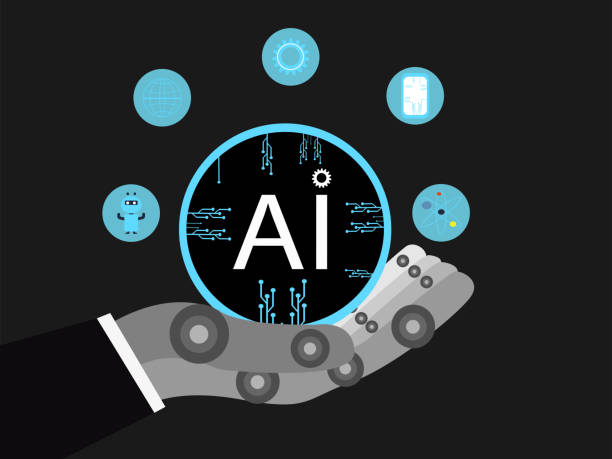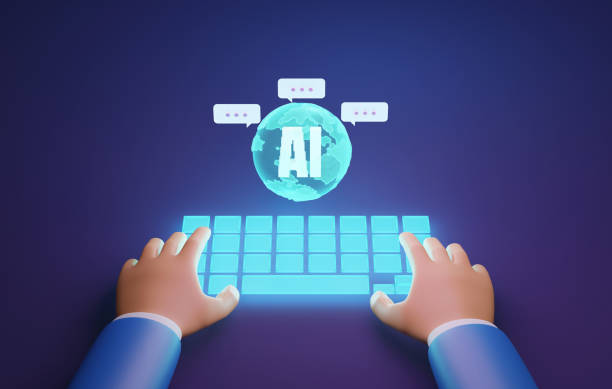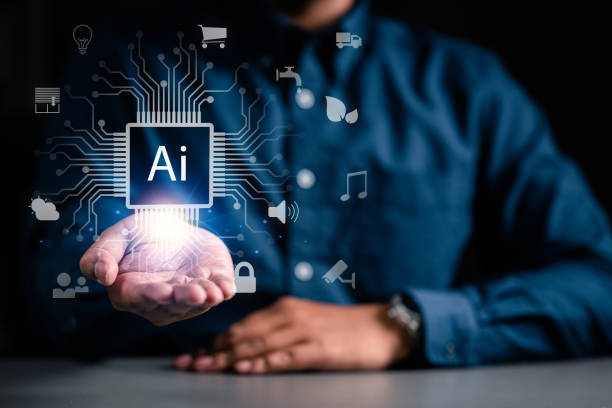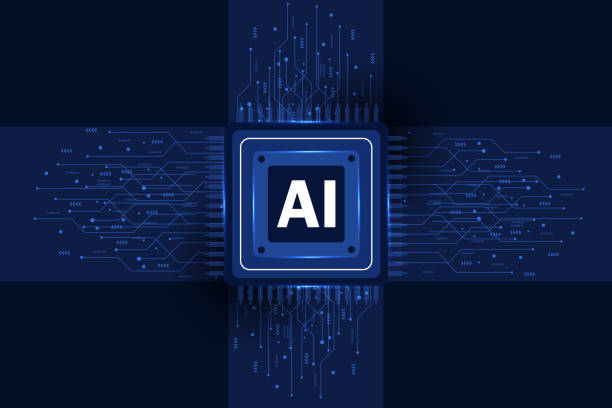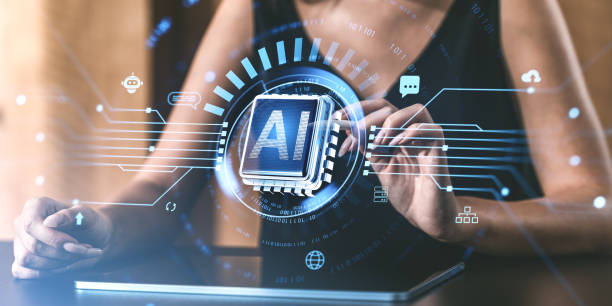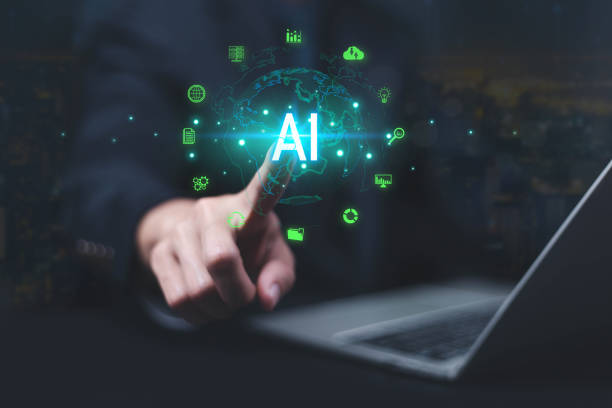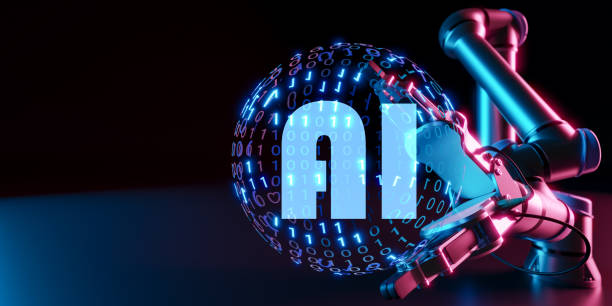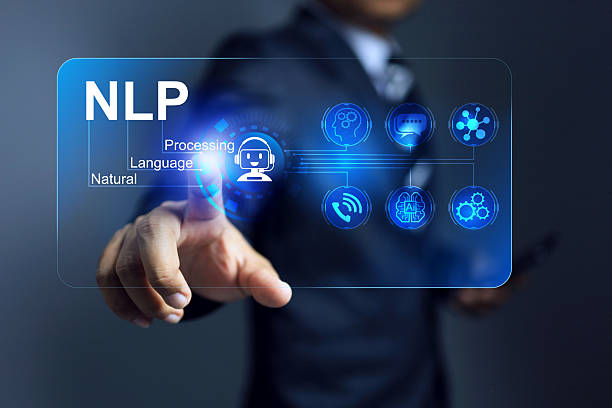What is Artificial Intelligence and What is its Impact on the Job Market?
Artificial Intelligence (AI) is a branch of computer science focused on building intelligent machines capable of performing tasks that typically require human intelligence.
These tasks include learning, problem-solving, natural language understanding, pattern recognition, and decision-making.
AI is rapidly evolving and has a profound impact on various industries and the job market.
The impact of AI on the job market is multifaceted.
On one hand, automation enables many repetitive and routine tasks, leading to increased productivity and reduced costs for companies.
This can result in the displacement of some jobs, especially those based on manual or repetitive work.
On the other hand, AI also creates new job opportunities.
Developing, implementing, maintaining, and monitoring AI systems require skilled professionals in various fields such as computer science, software engineering, data mining, and data analysis.
Therefore, the future of AI careers heavily depends on individuals’ ability to adapt to changes and acquire new skills.
Those capable of continuous learning and updating their knowledge can benefit from the new job opportunities created by AI.
Jobs requiring creativity, critical thinking, communication skills, and problem-solving are less susceptible to automation and are expected to remain highly important in the future.
The future of AI careers creates countless opportunities for skilled professionals.
Ultimately, the future of AI careers depends on how changes are managed and investments are made in workforce training and skill development.
Are you tired of your company’s website not meeting your expectations? With RasaWeb, design a professional website that truly represents your business.
✅ Increase attraction of new customers and sales leads
✅ Boost your brand’s credibility and trust among your audience
⚡ Get a free website design consultation!
Jobs at Risk and New Jobs Created by Artificial Intelligence
As mentioned, automation driven by AI can lead to the displacement of some jobs.
Jobs based on repetitive and routine tasks are most at risk.
For example, office jobs, telephone operators, production line workers, and drivers can be increasingly replaced by AI and robotic systems.
Click here to preview your posts with PRO themes ››
At the same time, AI also creates new job opportunities.
These opportunities are in various fields, including:
- Development and Maintenance of AI Systems including software engineers, data scientists, machine learning specialists, and robotics developers.
- Data Analysis and Data Mining including data analysts, data engineers, and data visualization specialists.
- AI Adaptability including AI trainers, AI ethics specialists, and AI implementation consultants.
Furthermore, jobs requiring human skills are less susceptible to automation.
These jobs include:
- Healthcare-related jobs including doctors, nurses, and therapists.
- Education-related jobs including teachers and professors.
- Creativity and Art-related jobs including writers, artists, and designers.
- Management and Leadership jobs including managers, team leaders, and entrepreneurs.
The future of AI careers requires individuals to be able to adapt their skills to the new demands of the job market.
This necessitates investment in training and developing new skills.
The future of AI careers is a major transformation in the job market and requires proper planning.
The future of AI careers brings many opportunities and challenges, and preparation for these changes is essential.
Skills Required for Success in the Future of AI Careers
To succeed in the future of AI careers, individuals must acquire specific skills.
These skills include:
- Technical skills including knowledge of programming, machine learning, statistics, mathematics, and computer science.
- Soft skills including critical thinking, problem-solving, communication skills, teamwork, and adaptability.
- Analytical skills including the ability to collect, analyze data, and extract useful information.
- Creative skills including the ability to ideate, innovate, and solve problems in new ways.
Furthermore, individuals must have the ability for continuous learning and knowledge updates.
AI is rapidly evolving, and people must be able to adapt to new changes.
Learning data science and related technologies will play a crucial role.
The best way to acquire these skills is through participating in training courses, workshops, and practical projects.
Additionally, individuals can use online resources and books for learning.
The future of AI careers requires continuous effort in learning and skill development.
Click here to preview your posts with PRO themes ››
The following table provides an overview of the required skills and different levels of expertise in the field of artificial intelligence:
| Skill | Description |
|---|---|
| Programming | Proficiency in programming languages such as Python, R, and Java |
| Machine Learning | Familiarity with machine learning algorithms and their implementation |
| Statistics | Knowledge of statistics and probability for data analysis |
| Mathematics | Basic mathematical knowledge including algebra, differential and integral calculus |
| Computer Science | Knowledge of computer science including data structures, algorithms, and operating systems |
The future of AI careers requires diverse skills that must be continuously strengthened.
Industries Most Affected by Artificial Intelligence
Artificial intelligence is currently having a significant impact on many industries, and this impact is expected to increase in the future.
Some of the industries most affected by AI include:
- Healthcare AI can be used for disease diagnosis, drug development, personalized care provision, and improving hospital efficiency.
- Finance AI can be used for fraud detection, risk management, providing personalized financial services, and improving business transactions.
- Manufacturing AI can be used for automating production lines, improving product quality, reducing costs, and optimizing the supply chain.
- Transportation AI can be used for developing self-driving cars, optimizing routes, improving safety, and reducing traffic.
- Retail AI can be used for providing personalized recommendations, improving customer experience, optimizing inventory, and reducing costs.
The future of AI careers in these industries is very bright, and there are many job opportunities in these fields.
Individuals with appropriate skills can achieve success in these industries.
The future of AI careers requires specialization in various areas.
The future of AI careers is a global phenomenon and affects all industries.
Did you know that 94% of a first impression of a company is related to its website design?
RasaWeb, by offering professional corporate website design services, helps you create the best first impression.
✅ Create a professional and trustworthy image for your brand
✅ Easier attraction of potential customers and improved online presence
⚡ Get a free corporate website design consultation
The Role of Governments and Organizations in Managing Changes Caused by Artificial Intelligence
Governments and organizations play a crucial role in managing the changes caused by artificial intelligence.
By adopting appropriate policies, they can benefit from AI’s advantages and prevent its negative effects.
Some actions that governments and organizations can take include:
- Investment in Education and Skill Development Governments should invest in the education and development of skills required for the future of AI careers.
This includes providing training courses, workshops, and internship programs. - Establishing Appropriate Laws and Regulations Governments should create suitable laws and regulations for artificial intelligence.
These laws must protect individual rights and prevent the misuse of AI. - Supporting Innovation and Research Governments should support innovation and research in the field of artificial intelligence.
This includes providing funding for research and development, establishing innovation centers, and supporting startups. - International Cooperation Governments should cooperate with each other to ensure the responsible development and use of artificial intelligence.
By taking these actions, governments and organizations can help manage the changes caused by artificial intelligence and harness its benefits for society.
The future of AI careers requires precise cooperation and planning.
The future of AI careers depends on the policies of governments and organizations.
The Future of AI Careers in Iran: Challenges and Opportunities
The future of AI careers in Iran, like in other countries, faces numerous challenges and opportunities.
On one hand, a shortage of skilled professionals, insufficient infrastructure, and inadequate laws and regulations can hinder the development of AI in Iran.
On the other hand, the high potential of a young and educated workforce, a large domestic market, and government support can create many opportunities for AI development in Iran.
To capitalize on these opportunities, Iran must invest in various areas.
These include:
- Education and Skill Development Iran must invest in the education and development of skills required for the future of AI careers.
This includes providing training courses, workshops, and internship programs. - Infrastructure Development Iran must provide the necessary infrastructure for AI development.
This includes access to high-speed internet, data centers, and computing resources. - Establishing Appropriate Laws and Regulations Iran must create suitable laws and regulations for artificial intelligence.
These laws must protect individual rights and prevent the misuse of AI. - Supporting Innovation and Research Iran must support innovation and research in the field of artificial intelligence.
This includes providing funding for research and development, establishing innovation centers, and supporting startups.
By taking these actions, Iran can benefit from the opportunities of the future of AI careers and become a leader in artificial intelligence in the region.
The future of AI careers in Iran requires planning and investment.
The future of AI careers in Iran, given its existing potential, is very promising.
Probable Scenarios for the Future of AI and Its Impact on Jobs
Accurately predicting the future of AI careers is impossible, but probable scenarios can be considered.
These scenarios are shaped based on the current trends in AI development and potential future advancements.
Scenario One: Gradual Progress In this scenario, artificial intelligence gradually advances and is increasingly used across various industries.
Automation of some repetitive and routine tasks leads to the displacement of certain jobs, but new job opportunities are also created.
Individuals with appropriate skills can succeed in this new job market.
Scenario Two: Rapid Progress In this scenario, artificial intelligence rapidly advances and has a profound impact on the job market.
Automation of many complex tasks also becomes possible, and a large number of jobs are eliminated.
Governments and organizations must be prepared to manage these changes and support vulnerable workforces.
Scenario Three: Human-Machine Coexistence In this scenario, artificial intelligence becomes a powerful tool available to humans, helping them perform their tasks better and faster.
Humans and machines collaborate, complementing each other’s strengths.
In this scenario, fewer jobs are eliminated than in other scenarios, and new job opportunities are also created.
The future of AI careers in this scenario is very positive.
Choosing the best scenario depends on multiple factors, but preparation for all three scenarios is essential.
The future of AI careers requires flexibility and adaptability.
Understanding these scenarios helps in better planning for the future of AI careers.
The Impact of Artificial Intelligence on Freelancing and Remote Work
The future of AI careers will have a significant impact on freelancing and remote work.
On one hand, AI can provide powerful tools for freelancers, helping them complete their work faster and more efficiently.
For example, AI-powered content generation tools can help freelance writers produce high-quality articles in less time.
On the other hand, AI can automate some freelancing tasks, leading to reduced demand for certain skills.
To succeed in the future of AI careers, freelancers must keep their skills updated and specialize in areas less susceptible to automation.
This includes creative skills, critical thinking, and problem-solving.
Additionally, freelancers must learn how to use AI tools to improve their efficiency.
The future of AI careers creates new opportunities for freelancers.
The future of AI careers requires adaptability to new changes in the job market.
Freelancers must be flexible and able to adjust their skills to the new demands of the market.
Review the table below:
| Type of Work | Description | Impact of AI |
|---|---|---|
| Content Creation | Producing articles, blog posts, and social media content | AI tools can help in faster and more efficient content generation. |
| Translation | Translating documents and websites | Machine translation tools are becoming increasingly accurate and can automate some translation tasks. |
| Programming | Developing software and websites | AI tools can assist programmers in writing code and debugging. |
| Graphic Design | Designing logos, websites, and marketing materials | AI tools can help designers create innovative and attractive designs. |
These professions can plan for the future of AI careers.
Tired of losing customers due to poor e-commerce website design? With RasaWeb, solve this problem forever!
✅ Increase sales and visitor-to-customer conversion rates
✅ Smooth and engaging user experience for your customers⚡ Get a free consultation
Preparing the Next Generation for the AI Job Market
For the next generation to succeed in the future of AI careers, they must be introduced to AI concepts from an early age.
This includes teaching the fundamentals of computer science, programming, and machine learning.
Additionally, the next generation should be taught soft skills such as critical thinking, problem-solving, communication skills, and teamwork.
The future of AI careers requires investment in education.
Parents, teachers, and educators play a crucial role in preparing the next generation for the future of AI careers.
They should encourage students to pursue studies in STEM fields (Science, Technology, Engineering, and Mathematics) and acquire the necessary skills for success in the future of AI careers.
The future of AI careers requires planning and preparation.
The future of AI careers depends on the education and training of the next generation.
Conclusion and Outlook on the Future of AI Careers
The future of AI careers is a complex and multifaceted landscape facing numerous challenges and opportunities.
Automation driven by AI can lead to the displacement of some jobs, but it also creates new job opportunities.
To succeed in the future of AI careers, individuals must keep their skills updated and specialize in areas less susceptible to automation.
Governments and organizations play a crucial role in managing the changes caused by artificial intelligence.
By adopting appropriate policies, they can benefit from AI’s advantages and prevent its negative effects.
The future of AI careers requires collaboration and planning.
Overall, the future of AI careers is bright and creates many opportunities for individuals with appropriate skills.
With proper preparation, these opportunities can be leveraged to achieve success in the future of AI careers.
The future of AI careers is changing, and one must adapt to it.
The future of AI careers must be managed with care and planning.
Frequently Asked Questions
| Question | Answer |
|---|---|
| What impact will AI have on the future job market? | AI will automate repetitive jobs, but at the same time, it will create new and more complex jobs in areas such as the development, maintenance, and training of AI systems. |
| Which jobs are most at risk of being replaced by AI? | Jobs involving repetitive, rule-based tasks with little need for creativity or emotional intelligence, such as some manufacturing jobs, data entry, and simple customer service, are most at risk. |
| What skills are essential for success in an AI-driven career future? | Skills such as critical thinking, complex problem-solving, creativity, emotional intelligence, data literacy, the ability to work with AI, and lifelong learning are of high importance. |
| Will AI lead to widespread unemployment? | Some jobs will be lost, but history has shown that new technologies, instead of causing widespread unemployment, reshape the job market and create new jobs. The need for adaptability and retraining is crucial. |
| What new job opportunities emerge with the advent of AI? | Jobs such as Machine Learning Engineer, Data Scientist, AI Ethicist, Human-AI Interaction Designer, and Digital Transformation Consultant are among the new opportunities. |
| What is the role of education in preparing for an AI-driven career future? | Education must focus on developing soft skills, computational thinking, digital literacy, and the ability for continuous learning to prepare individuals for future changes. |
| How can I prepare myself for job market changes caused by AI? | You can prepare by learning new skills related to AI and data, strengthening soft skills, developing critical and creative thinking, and adopting a habit of lifelong learning. |
| Will AI ethics become an important career field? | Yes, given increasing concerns about biases, privacy, and automated decision-making in AI, the role of AI ethics specialists will become crucial for ensuring its responsible development. |
| What is the importance of human-AI collaboration in the future of work? | Human-AI collaboration, rather than competition, will shape the future of the job market. AI can be a tool to increase human productivity and focus on more complex and creative tasks. |
| Which industries will be most affected by AI? | Almost all industries will be affected, but areas such as healthcare, finance, transportation, manufacturing, education, and customer services are pioneers in AI adoption and transformation. |
And other advertising services from RasaWeb Advertising Agency in the field of advertising
Smart Social Media: An effective tool for increasing sales with the help of custom programming.
Smart Brand Identity: An effective tool for analyzing customer behavior with precise audience targeting.
Smart Marketplace: Revolutionize sales growth with personalized user experience.
Smart Google Ads: A new service for increasing click-through rates through intelligent data analysis.
Smart Link Building: Designed for businesses looking to increase sales through precise audience targeting.
And over hundreds of other services in internet advertising, advertising consultation, and organizational solutions.
Internet Advertising | Advertising Strategy | Advertorials
References
The Future of AI Careers in Iran
The Future of AI Careers
The AI Job Market: Challenges and Opportunities
The Future AI is Shaping for the Job Market
? Are you ready for your business to leap forward in the digital world? RasaWeb Afarin Digital Marketing Agency assists you on your growth path by providing innovative solutions in e-commerce website design, SEO, social media management, and branding. For a free consultation and to learn more about our services, contact our experts today.
📍 Tehran, Mirdamad Street, Next to Central Bank, Southern Kazeroun Alley, Ramin Alley, No. 6

